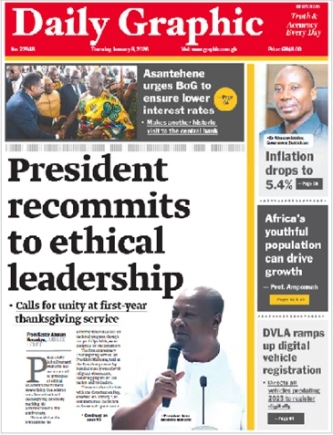
Project to connect Parliament to citizens ends
A project aimed at helping the Committee on Government Assurances (CGA) to play an effective oversight role over assurances and promises made by government through maximised interaction with citizens has ended in Accra.
Dubbed, “Connecting Citizens to Parliament”, the two-year project was successfully organised in collaboration with Penplusbytes, a not-for-profit organisation that seeks to empower the media through the use of Information and Communications Technology.
The project, implemented with financial and technical support from Open Society Initiative West Africa (OSIWA), was also designed to increase interaction between the CGA and citizens on public service delivery with particular emphasis on the education, roads, power, energy and health sectors using technology platforms.
Background to the project
For a long time, citizens were not able to connect with Parliament using technology unless the Member of Parliament visited the constituency.
Penplusbytes, therefore, saw the need for connecting citizens to Parliament through the ““Connecting Citizens to Parliament”, by developing a number of tools that allow citizens to be able to engage with their parliamentarians in a manner that would not impose on them extra cost in terms of visiting an MP or going to meet him or her at some point.
During the course of the project, the platforms created by Penplusbytes for the CGA were able to monitor 65 assurances made by ministers, which had nearly two million subscribers to the various platforms, namely SMS, Facebook, Twitter and WhatsApp.
The platforms generated over three million responses as feedback from citizens spread across the country reporting on various projects promised by the government with regard to the level of development.
Reports generated from the platform provided evidence-based data that informed the CGA about which government assurances had not been fulfilled so the ministers who made the promises could be held to account.
Why CGA
Asked why CGA was selected for the project, the Executive Director of Penplusbytes, Mr Kwami Ahiabenu II, during an executive working lunch session to review and plan for a future project scale-up, said the committee was one of the powerful committees in Parliament because they interacted with the public in a more robust manner in order to achieve their intended purpose.
Therefore, he said, there was the need to help ease the work of the committee by introducing members to some technological tools that would help them interact with citizens.
Additionally, he said, the role of the committee was to monitor projects happening in the various communities and for information to come to them, they needed to interact with citizens unlike other communities that did not need such ongoing relationship.
“The CGA does an important work in the sense that when the government makes promises, they ensure that that promise is actually fulfilled and to do that, the Members of Parliament on the committee are not everywhere but citizens who are the actual people on the ground are able to send feedback to them which helps the committee to hold a public hearing and actually question the ministers about the status of their promises,” he said.
Improved work of CGA
Mr Ahiabenu II said since the project began, the committee’s work and visibility had increased such that citizens now knew they did not need to meet their MPs physically to interact but could use simple technologies like SMS, mobile App, website or WhatsApp to interact with them.
Citizens, he said, also now understood that by using the various technological platforms, they had instant feedback for the concerns they raised.
The way forward
Touching on the future of the project, he said the organisation intended to expand the project to other West African countries and other committees in Parliament come 2017.
“We hope to continue this work with the next Parliament of Ghana or expand to other committees in Parliament because now we have a proven concept and evidence that this will work and it gives us the hope that we can work with other committees in Parliament and also reach out to other countries with the same projects,” he said.
Project laudable
In his remarks, the Chairman of the committee and Member of Parliament for Ho West Constituency, Mr Emmanuel Kwasi Bedzrah, acknowledged how the project had enhanced the technology and information skills of committee members.
He, therefore, called on all stakeholders to support the committee to sustain the success chalked up by the “Connecting Citizens to Parliament” project to ensure that the Parliament of Ghana could continue to interact with even more of its citizens.
“The platform has indeed removed the challenges of physical distance and logistical barriers to citizens’ engagement, especially among the youth. It has solved problems related to tracking and monitoring assurances made by the Executive,” he said.

 Click the link to read your copy.
Click the link to read your copy.